Finding a place for assisted suicide in society
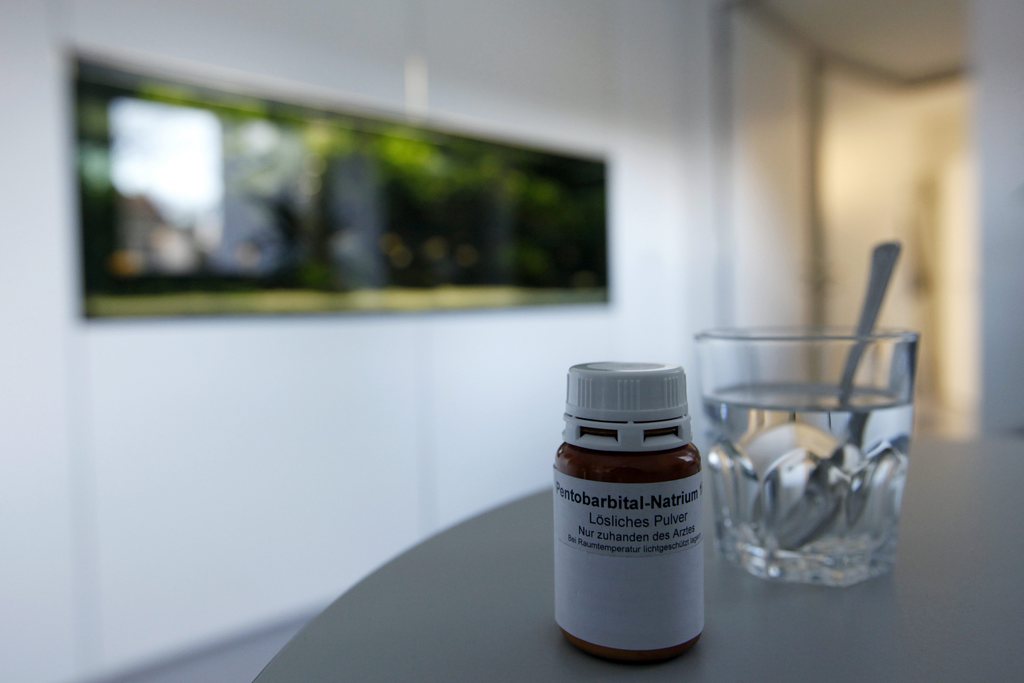
With the number of people availing of assisted suicide in Switzerland up 60 per cent over the past five years, policymakers want to improve access to palliative care to alleviate the widespread fear of dying badly.
The two main Swiss assisted suicide organisations – Exit and Dignitas – made it possible for 560 people to end their lives in 2011. This equates to one in three of all suicides in Switzerland.
While the right to die is consistently backed by a majority of the electorate, there are details within the practice of assisted suicide that split opinion, such as the vote in canton Vaud last month over exercising the right to die in a residential care home.
Voters in the French-speaking canton accepted the local government’s proposal to oblige nursing homes and hospitals to accept the practice only when the person in question is suffering from an incurable illness or injury.
Outside of this exception, the only condition imposed by Swiss law is that patients commit the act themselves and helpers have no vested interest in their death.
Palliative care doctor Andreas Weber, who cares for 300 terminally ill patients each year, knows more than most about the wishes and needs of people close to death.
He estimates that 20 of these patients express a serious intention to die through assisted suicide while one to two go on to carry out this wish. Weber told a recent congress in Zurich of the World Federation of Right-to-Die Societies what motivated them.
Fear of suffering
“The two main reasons are fear of suffering and not wanting to be a burden on relatives or go into a care home. For a smaller group it’s a case of just not wanting to go on like this,” he told delegates.
“They are in a dilemma: they don’t want to leave the date too late so that they suffer or arrange it too early and miss out on good life.”
“By dealing with the two main fears, we find the suicide wish fades away.” What Weber’s palliative service in Zurich can offer is a promise of adequate pain relief to the end or the option of sedation in the case of breathing difficulties. The service also includes 24-hour support at home for the dying.
Justice Minister Simonetta Sommaruga emphasised the role of palliative care and pledged to boost its provision throughout the country in her speech to the congress.
“Assisted suicide is one possibility but palliative medicine offers other choices for people at the end of life. The decision about suicide should be made with the knowledge of these other possibilities,” she said.
A general practitioner attending the right-to-die congress said she and her colleagues were ill-equipped to deal with the dying and called for compulsory training in palliative care.
Target group
Zurich’s prosecutor Andreas Brunner, who has a track record of pursuing legal action in cases of assisted suicide on his turf, pointed to the trend in recent years of increasing the target group for assisted suicide.
“At first the argument was that it [assisted suicide] was intended for the terminally ill, then it was broadened to include the very ill facing extreme suffering,” he said.
“Then the idea was that it should be open to the elderly who were suffering the effects of old age or a combination of illnesses, and finally it’s open to healthy people,” Brunner added.
Switzerland’s assisted suicide organisations are left to their own devices legally, according to Brunner.
The prosecutor called for legislation in the area, pointing out that there were no regulations for the selection, training or monitoring of suicide assistants.
“The organisations are not required to be run on a not-for-profit basis and are not subject to accounting obligations. Neither are they required to keep comprehensive records of their cases.”
“I’m not saying the organisations are not already doing these things but it should be laid down in law,” Brunner said.
Sommaruga dealt with this question in her speech. “The government studied all these proposals and came to the conclusion in June 2011 that the current law was sufficient to prevent abuse.”
The minister said it was evident that any conditions imposed on assisted suicide very quickly lead to a massive limitation of the right to self-determination. “That is something the government does not want.”
Worlds apart
Across the street from the congress hotel in a classroom rented from a language school, a small gathering of anti-euthanasia and pro-life campaigners held a counter conference.
Alex Schadenberg of the Euthanasia Prevention Council, who spoke at the event, told swissinfo.ch he saw an inherent problem with organised suicide assistance.
“The trouble with these organisations is that they are directly and intentionally involved in the death of other people, they are providing the means and perhaps also counselling. There’s a distance that’s been lost in the protection of people,” he argued.
Back at the congress, on the other end of the spectrum, controversial Australian doctor and author of The Peaceful Pill, Philip Nitschke, was advocating what he calls the DIY option.
“Take the legal and medical aspect out of it and give the person the information and the technology to end their own life if they so choose.”
Swiss law tolerates assisted suicide when patients commit the act themselves and helpers have no vested interest in their death. Assisted suicide has been allowed in the country since the 1940s.
Death is usually induced through a lethal dose of barbiturates that has been prescribed by a doctor. Ingestion of the poison, whether by drinking it or through the use of intravenous drips or stomach tubes, must be carried out by the person wanting to die.
A 2006 decision by the Swiss Federal Court ruled that all people of sound judgment, irrespective of whether they suffer from a mental illness, have the right to decide the manner of their death.
In June 2011, the government examined various options to regulate assisted suicide practices and decided not to seek legal changes but to boost suicide prevention and palliative care.
Switzerland has two main groups which cater to people who seek an assisted suicide, Exit and Dignitas.
The differing approaches to assisted suicide were highlighted again last month when the canton of Vaud became the first to introduce a law explicitly regulating and limiting access to assisted suicide.
62 per cent of voters in the French-speaking canton accepted a proposal obliging nursing homes and hospitals to accept the practice – under certain conditions.
The person in question has to be suffering from an incurable illness or injury and of sound mind. The decision whether both criteria are met is taken by the head of the nursing home or, in the case of a hospital, by the chief physician.
The idea is anathema to organisations like Exit who see this kind of medical involvement as “an inacceptable breach of individual liberty and a form of institutional paternalism.”

In compliance with the JTI standards
More: SWI swissinfo.ch certified by the Journalism Trust Initiative
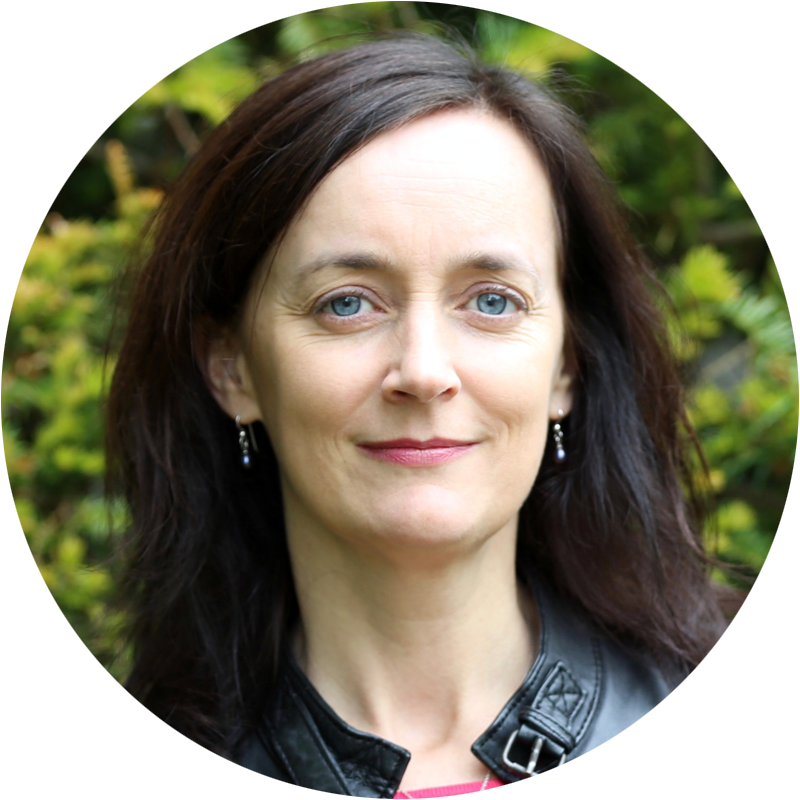
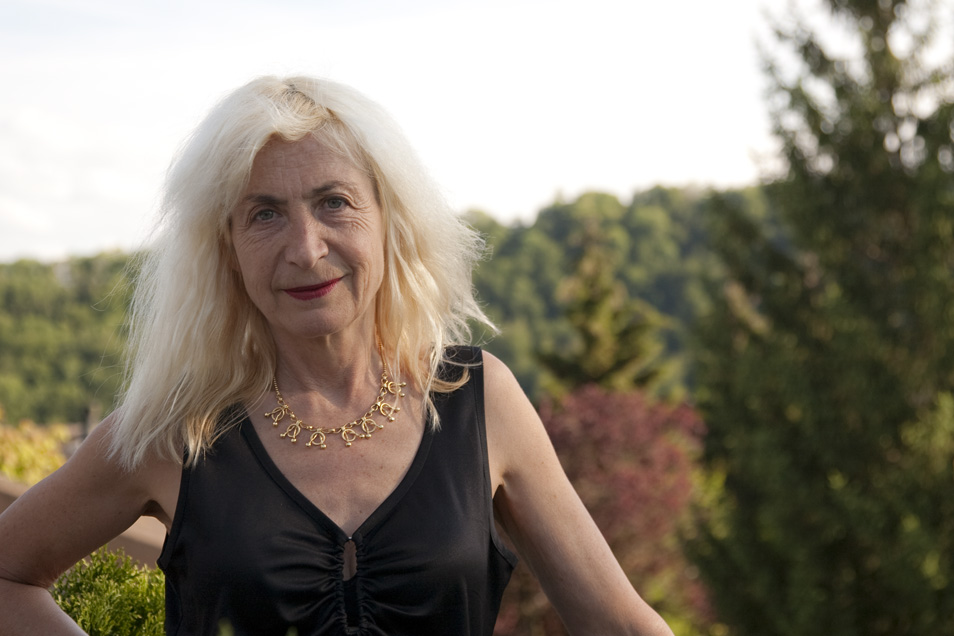
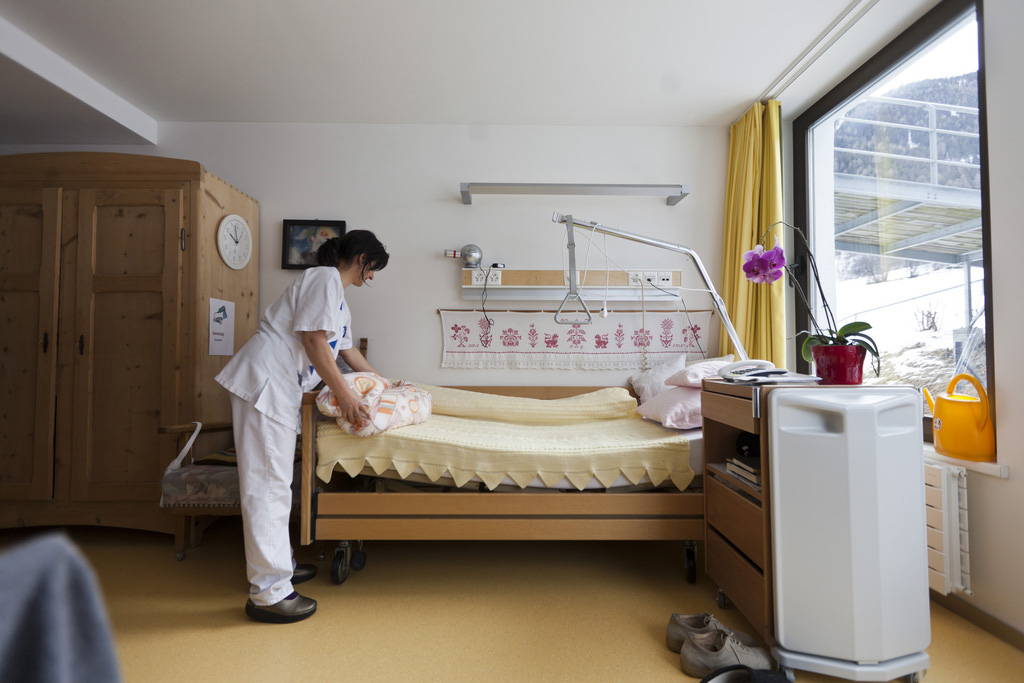
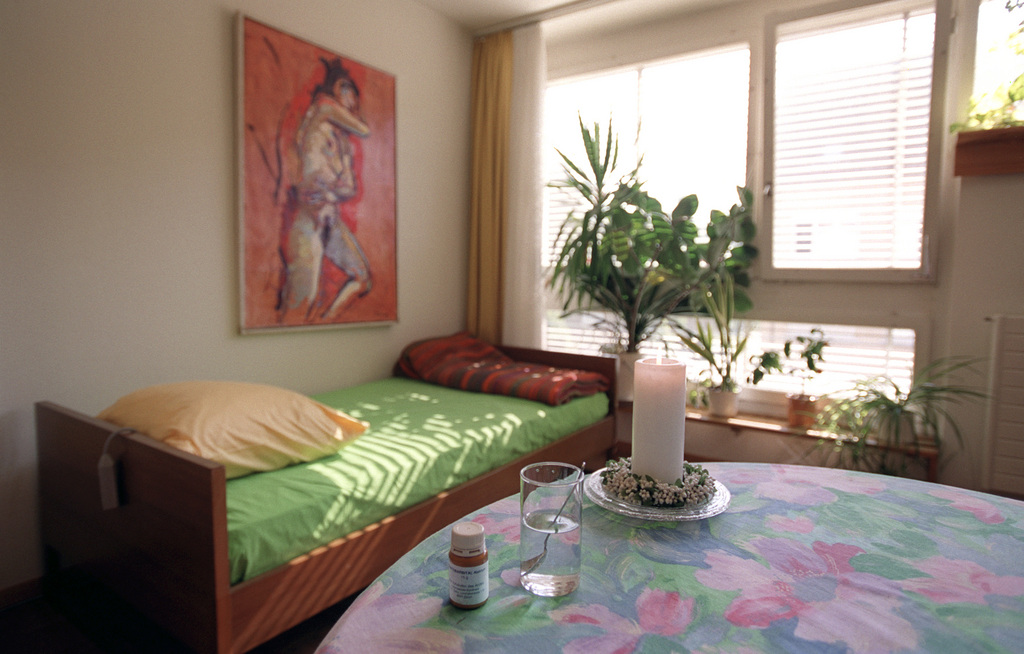
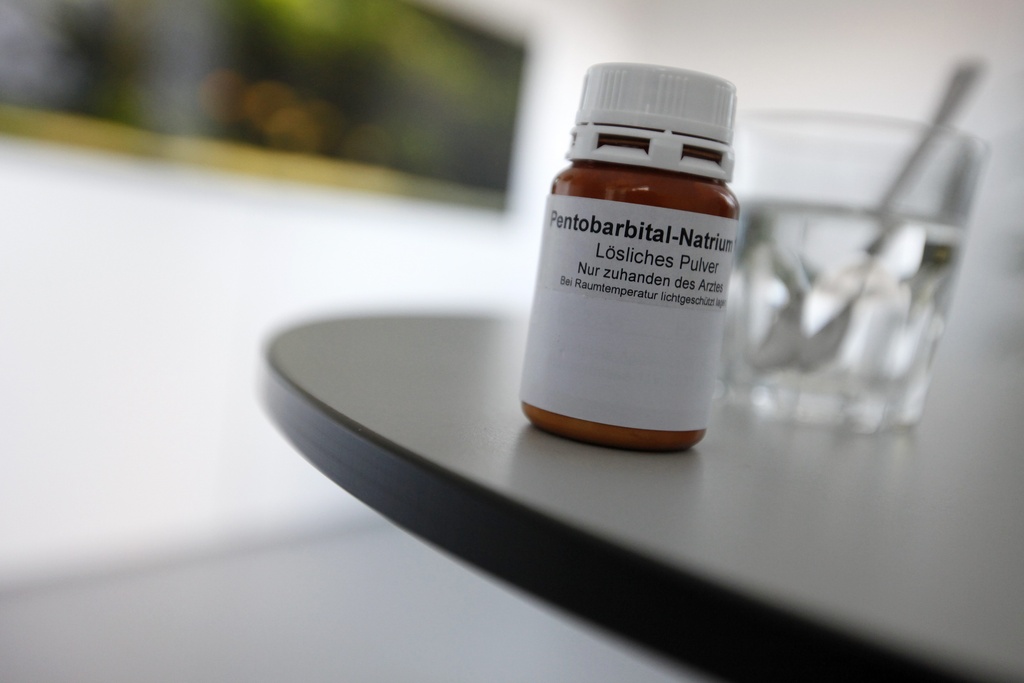
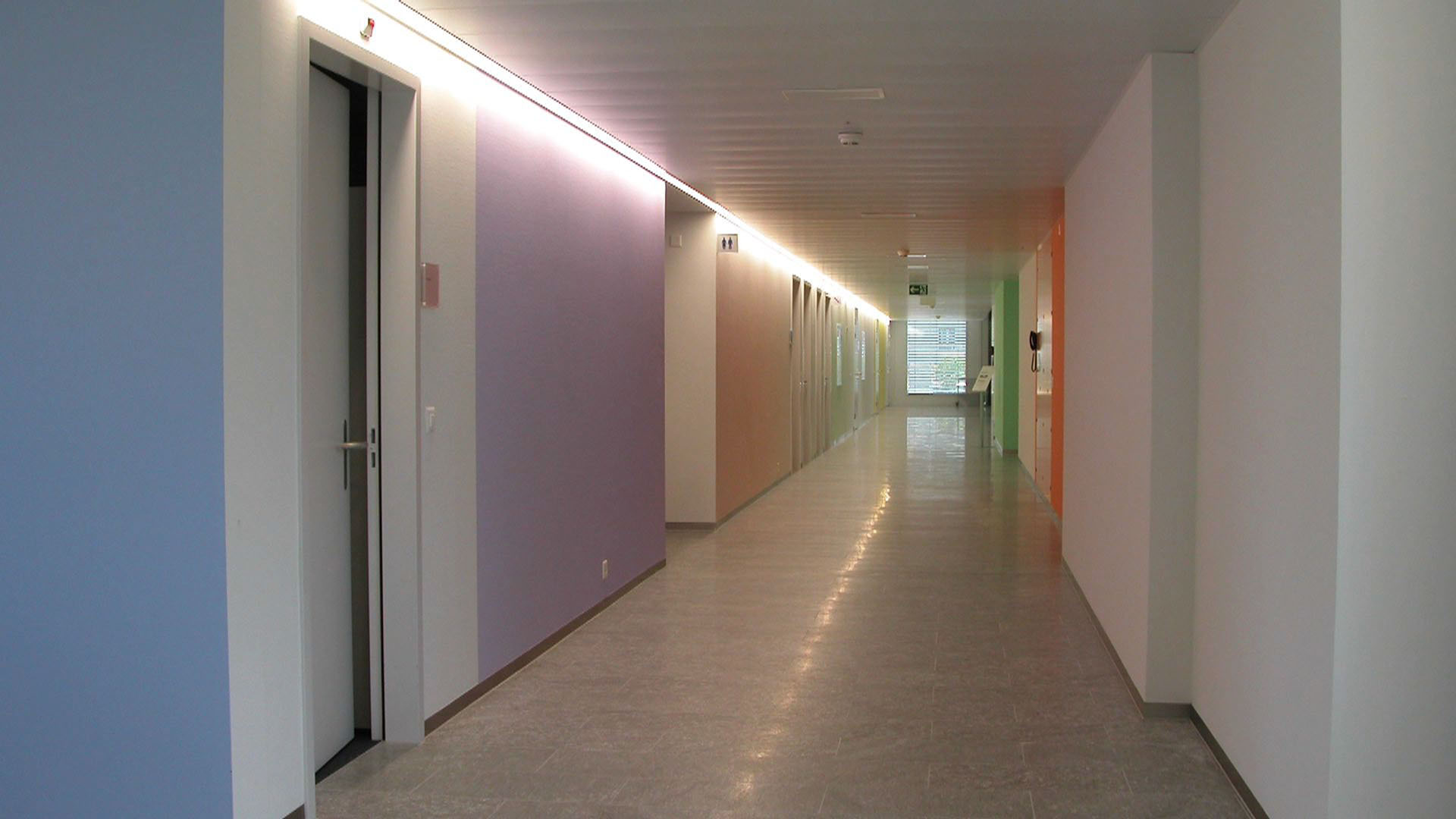
You can find an overview of ongoing debates with our journalists here. Please join us!
If you want to start a conversation about a topic raised in this article or want to report factual errors, email us at english@swissinfo.ch.